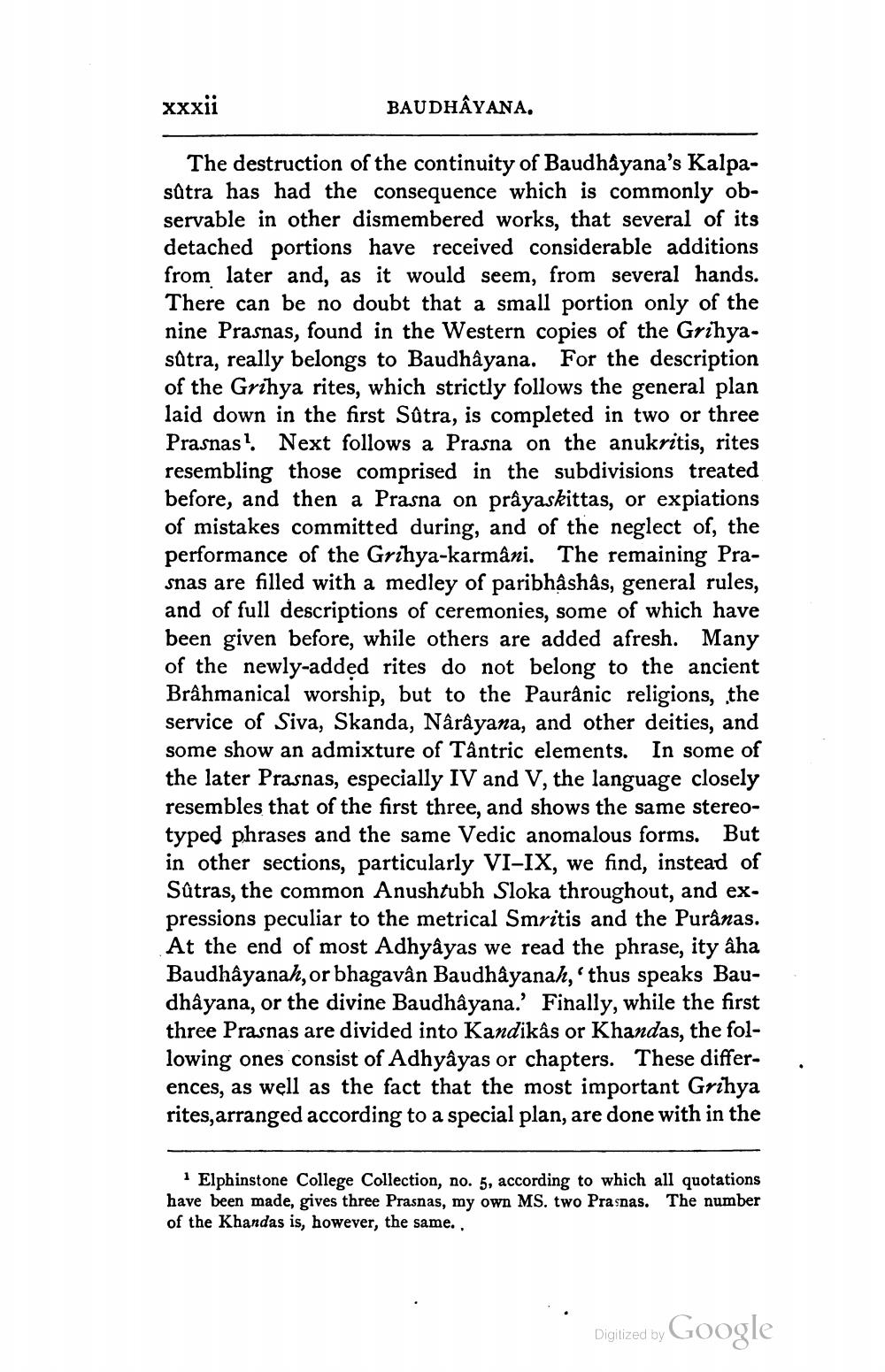________________
xxxii
BAUDHÂYANA,
The destruction of the continuity of Baudhảyana's Kalpasútra has had the consequence which is commonly observable in other dismembered works, that several of its detached portions have received considerable additions from later and, as it would seem, from several hands. There can be no doubt that a small portion only of the nine Prasnas, found in the Western copies of the Grihya. satra, really belongs to Baudhầyana. For the description of the Grihya rites, which strictly follows the general plan laid down in the first Sûtra, is completed in two or three Prasnas? Next follows a Prasna on the anukritis, rites resembling those comprised in the subdivisions treated before, and then a Prasna on prâyaskittas, or expiations of mistakes committed during, and of the neglect of, the performance of the Grihya-karmâni. The remaining Prasnas are filled with a medley of paribhậshâs, general rules, and of full descriptions of ceremonies, some of which have been given before, while others are added afresh. Many of the newly-added rites do not belong to the ancient Brâhmanical worship, but to the Paurânic religions, the service of Siva, Skanda, Narayana, and other deities, and some show an admixture of Tântric elements. In some of the later Prasnas, especially IV and V, the language closely resembles that of the first three, and shows the same stereotyped phrases and the same Vedic anomalous forms. But in other sections, particularly VI-IX, we find, instead of Satras, the common Anushtubh Sloka throughout, and ex. pressions peculiar to the metrical Smritis and the Purânas. At the end of most Adhyâyas we read the phrase, ity âha Baudhayanah, or bhagavân Baudhầyanah,'thus speaks Baudhầyana, or the divine Baudhayana.' Finally, while the first three Prasnas are divided into Kandikâs or Khandas, the following ones consist of Adhyâyas or chapters. These differences, as well as the fact that the most important Grihya rites,arranged according to a special plan, are done with in the
Elphinstone College Collection, no. 5, according to which all quotations have been made, gives three Prasnas, my own MS. two Prasnas. The number of the Khandas is, however, the same..
Digitized by Google




